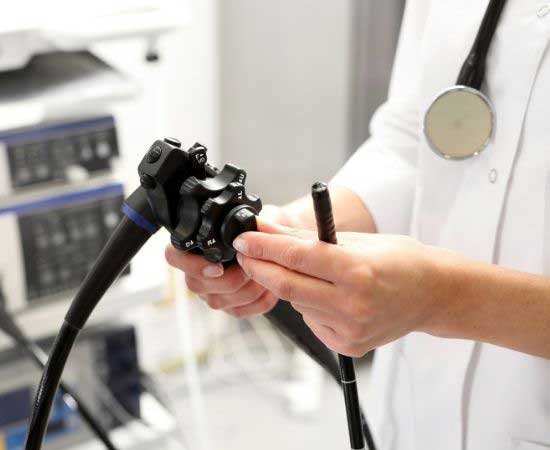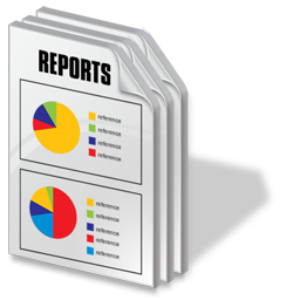
Are you looking for the answers of what to eat after colonoscopy test or what is the best thing to eat after a colonoscopy? If yes then you are the right place. Let’s know first what is a colonoscopy?
It’s a kind of screening test that is used to detect specific changes in the colon.
It must be done under sedation, provided by an anesthesiologist or even a nurse.
Colonoscopy is mainly used to find out potential health issues such as colorectal cancer and polyps.
Your diet during the procedure is critical.
It will be best if you take care of dehydration; this is one thing you will have to consider during the process because refilling your system with the electrolytes and fluids is essential.
Your doctor might recommend you to eat less, or absolutely nothing, especially in the hours after the procedure.
You don’t want to irritate your colon by having food that’s hard to digest.
You must drink plenty of fluid and have easily digestible food.
These dietary restrictions are roughly for a day, although everyone is not the same.
If someone’s system cannot tolerate their regular diet immediately, they must continue eating liquid-based and soft foods for a few days.
Therefore, What is the best food to eat after the colonoscopy? Let’s see below-

What to Eat After Colonoscopy:
After you have undergone a colonoscopy, you will have to consume food and drink that are not rough for your digestive system.
To avoid dehydration, drink plenty of fluid/fluid-based foods.
Your doctor might ask you to follow a low-balance and soft diet right after the colonoscopy, which consists of low-fiber foods and limited dairy products that produce comparatively less stool and are easily digestible.
Therefore, what to eat after colonoscopy with polyp removal or what can you eat after a colonoscopy or what will be your diet after the colonoscopy?
Below is a list of foods to eat after colonoscopy:
- Drinks rich in electrolytes
- Drinking water
- The juice is made from fruits.
- The juice is made from vegetables.
- Herbal tea
- Salted crackers
- Graham crackers
- Soup
- Applesauce
- Eggs (Scrambled)
- Soft, cooked vegetables
- Certain canned fruits like peaches
- Yogurt
- Jell-O
- Popsicles
- Pudding
- Baked potato or mashed potato
- Toast or white bread
- Tender nut butter
- Tender white fish
- Apple butter
What not to Eat after a Colonoscopy:
Now you must consider the foods that should not be eating after colonoscopy
A colonoscopy takes typically around half an hour, but your system will need some time to recover.
This is because of the procedure and the bowel preparation before the process.
Your colonoscopy recovery can speed up if you avoid foods that are not easily digestible.
Because such foods are most likely to irritate the bowels, you must avoid foods rich in fiber and spicy.
Fatty foods might also induce a nauseous feeling after anesthesia.
Air passes into the colon while colonoscopy; thus, it remains open. As a result, more gas may be expelled from your system.
You will have to avoid drinks such as carbonated beverages in such cases because they introduce more gas to your body.
If a polyp is removed, the doctor might suggest extra dietary guidelines, including omitting foods such as popcorn, seeds, and nuts for two weeks.
Foods and drinks that you must avoid the day after the colonoscopy:
- Alcohol-rich beverages
- Meat that is hard to digest, e.g., steak
- Bread made from whole grain
- Crackers made from seeds or whole grain
- Raw vegetables
- Corn
- Legumes
- Brown rice
- Fruit with skin included
- Dried fruit, e.g., raisins
- Coconut
- Certain spices like red pepper, garlic, and curry
- Highly seasoned foods
- Butter made from crunchy nut
- Popcorn
- Fried food
- Nuts
Best practices for Taking Care of your Colon:
The colon is also known as the large intestine, and it is an essential part of your digestive system.
If you want to keep it healthy, consider getting a colonoscopy every 5-10 years, beginning from the 50s.
Most people need only one such screening per decade.
To keep your colon healthy, you must eat healthily.
This is one way to take care of your colon other than regular screenings.
Try to avoid unhealthy lifestyle choices; your body mass index must be in the healthy range.
Colon cancer may also occur due to heredity, but the percentage is low.
Almost 10 percent of colon cancer is due to heredity.
Try and develop healthy habits, which can impact your colon health a great deal.
A study in 2015 reported that people suffering from obesity, mainly abdominal obesity and type 2 diabetes run a risk for colon cancer.
References to dietary factors were also found in the article, and these factors increase the risk.
Healthy Foods:
- Fruits
- Vegetables
- Lean protein
- Whole grains
- Dairy products that have low fat, such as skim milk and yogurt
Unhealthy Foods:
- Foods rich in sugar and desserts
- Foods rich in saturated fat, e.g., fast food
- Red meat
- Meat that is processed
- Cigarettes and a variety of tobacco products must be avoided for good colon health.
How Long Does a Colonoscopy Take?
Some people require a plan for the day of the procedure and want to know how much time they will consume.
This plan is vital for the caregivers as well, who come with the patients.
The colonoscopy procedure needs typically 30-60 minutes, but it depends on whether the doctor has to take biopsies or remove polyps.
The caregivers and patients must have 2-3 hours in hand for the endoscopy center or hospital.
During the procedure, the caregivers either have to wait in the waiting room, or give their phone number to the staff and expect a call from them whenever the colonoscopy is over.
For the remainder of the day, the patients have to recover and take rest at home.
The patient must take a day off from his work, just in case he/she works.
What happens during a Colonoscopy?
Almost 30-60 minutes before the colonoscopy, the patient will be asked to wear a gown, and the nurse will start an IV.
Afterward, the nurse or the doctor will go over things that will occur during the procedure and whether there are any risks involved.
The patient is then lightly sedated via IV or pill.
It is unlikely that the patient will recall the colonoscopy later of the sedation.
After the process is over, the patient will require 30-60 minutes to come out of the sedation, followed by getting dressed up and exiting the building.
To conclude, the doctor will discuss what he/she has found in the process of colonoscopy and whether there are any additional steps.
If the doctor took samples of tissue and removed polyps, they will be sent to the lab to decide whether they are cancerous, precancerous, or benign.
In exceptional cases, the doctor may find that the growth or polyp is too large to be removed, and in such cases, the patient will be asked to see a surgeon or a specialist.
The doctor might also advise following a diet that has a low residue.
The effects of sedation might last for a day; hence, patients must not drive and make any crucial decisions.
They must wait until the effects have worn off. The patient might pass gas and feel bloated the day after colonoscopy.
How long is a Colonoscopy from Start to Finish?
- 30-60 minutes for preparing the patient before the colonoscopy
- The colonoscopy will take 30-50 minutes itself.
- Another 30-60 minutes after the procedure, for the patient to recover.
- The patient will recover and take rest at home for the remainder of the day.
The above-mentioned information of what to eat after a Colonoscopy, you should consider as well that exercise can play a vital role in colon health. Exercise effectively reduces insulin levels and also keeps you away from obesity.
A review in 2016 reported that people who are physically active run 27% less risk of developing colon cancer than people who don’t engage in physical activity.








